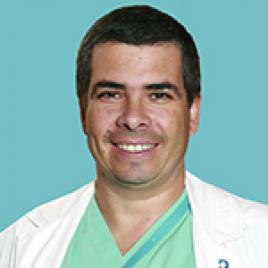This CU is of the modular type and is taught three times a year to one group of students at a time.
This CU adopts an integrated approach to the main areas of Surgery, Orthopedics, Urology, Anesthesia, Intensive Care, Plastic Surgery, Dermatology, Ophthalmology, and Otolaryngology. It primarily focuses on the causes, mechanisms, manifestations, and treatment of conditions that may require intervention in General Surgery, Vascular Surgery, Neurosurgery, Orthopedics, Urology, Ophthalmology, or Otolaryngology.
Intended learning outcomes (knowledge, skills and competences to be developed by the students):
- Be able to take patient´s history, physical examination, differential diagnosis, proposal and interpretation of complementary exams, therapeutic plan and prognostic evaluation of surgical situations; Preparation of sterile trays for minor surgical procedures; Use of basic surgical equipment; Execution of sutures and local anesthesia; Treatment of simple wounds; Administration of intramuscular injections
- Acquire skills of teamwork; Communication with the patient and family in the context of surgery; Presentation and discussion of clinical cases; Conducting tutorial sessions.
- Take a clinical history, perform a detailed physical examination, request and interpret appropriate complementary tests, establish lists of problems and diagnostic hypotheses in the context of clinical situations with potential surgical indication
- Describe causes, mechanisms, principles of treatment and prognosis of situations with potential need for surgery
Syllabus:
Integrated approach, including anatomy, histopathology, pathophysiology, clinical manifestations, laboratory and imaging, of the following main topics:Preoperative evaluation;Early and late complications, including hypovolemic and septic shock, acid-base and hydro-electrolyte changes, acute renal failure;Thoracic, abdominal, including hemo / pneumothorax, vole costal, cardiac tamponade, hemo / pneumoperitoneum;Cranio-encephalic trauma.
Pathologies:
- The abdominal wall
- The esophagus, stomach and duodenum
- Hepato-bilio-pancreatic
- Ileo-colic
- Renal and vesico-prostatic and andrological
- Orthopedic
- Pediatric and neonatal surgical
- Peripheral vascular and great vessels
- Neurosurgical
- The dermatological
- Ophthalmologic and Otolaringology.
- Preoperative evaluation
- Early and late complications of surgery
- Thoracic, abdominal and cranio-encephalic injuries
- Decision algorithms in surgical emergency
- Assessment and treatment of burns





